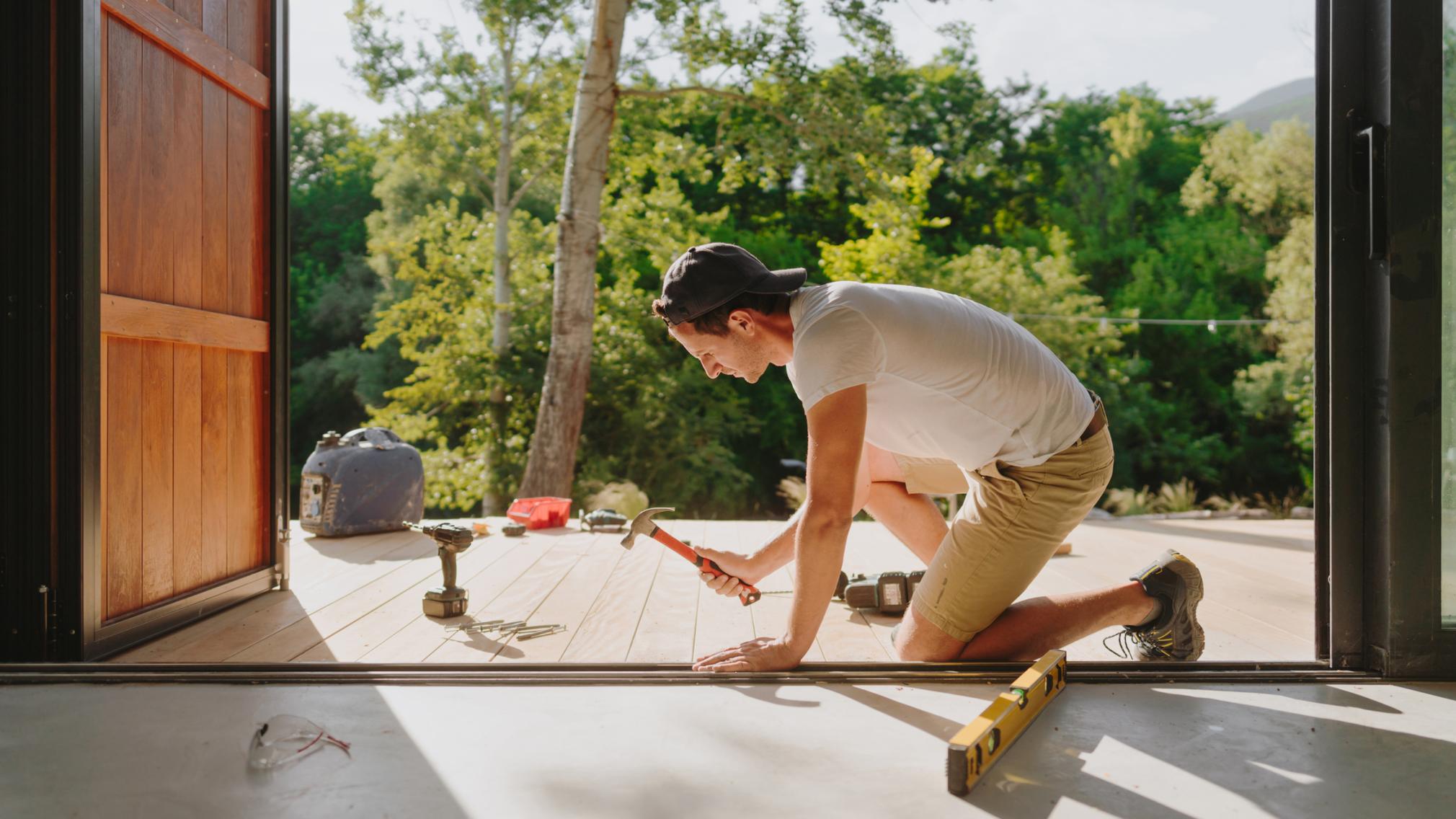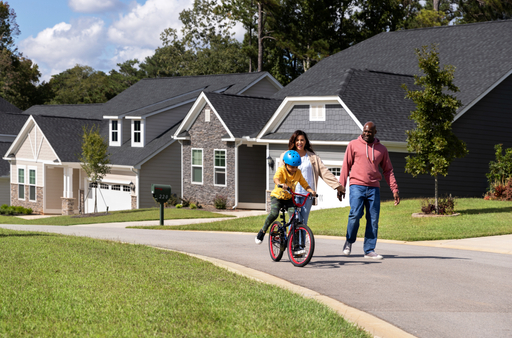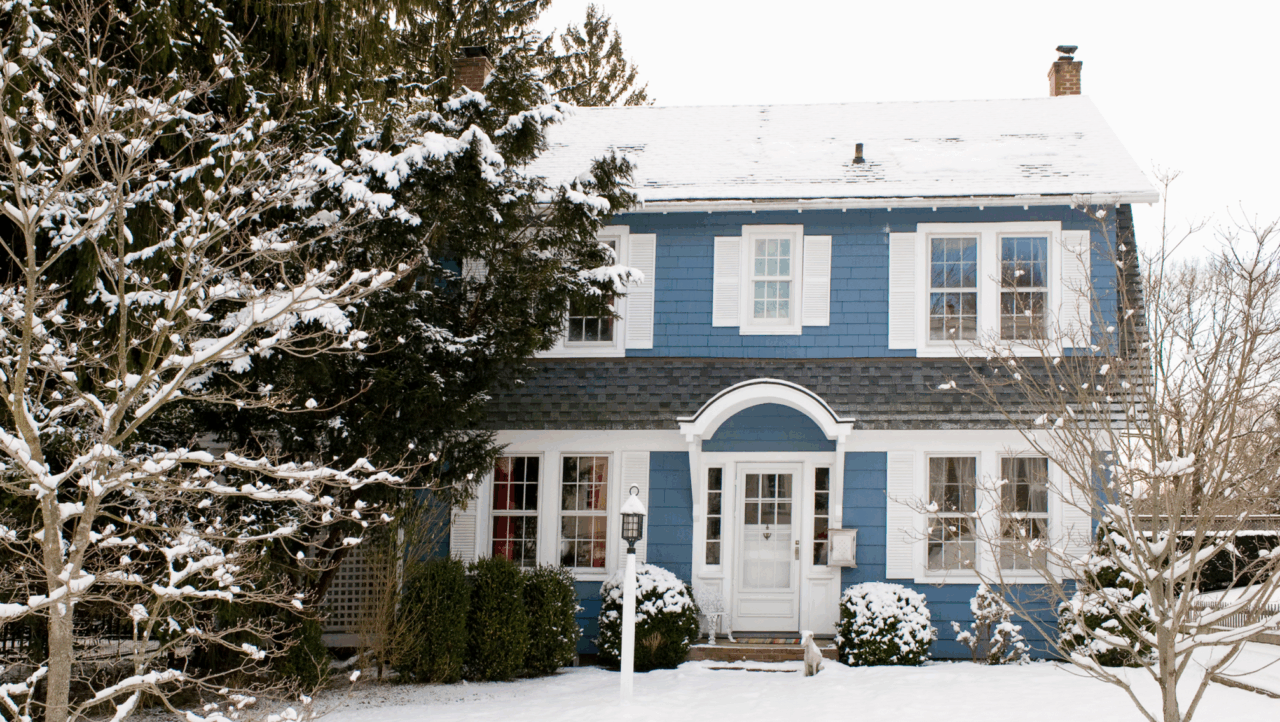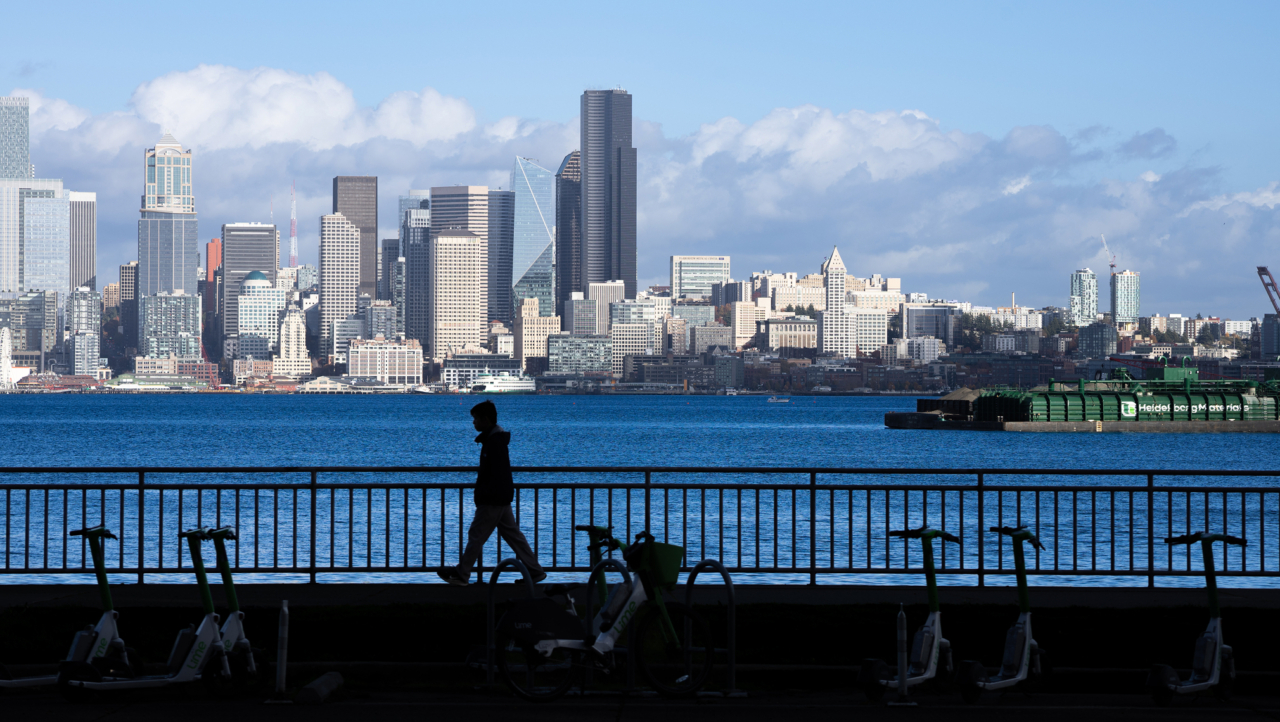Is It Cheaper to Buy or Build a House?
Deciding to buy a house vs build one comes down to the cost. See which is cheaper.


Written by Alycia Lucio on November 8, 2024
Key takeaways
- It’s usually less expensive and faster to buy an existing home than building a new house.
- Building allows customization but comes with higher costs, construction delays, and potential price overruns.
- Location, labor, and material prices heavily influence the cost comparison.
Buying a home is usually cheaper than building one, but the total cost depends on factors like the size of the home, materials, market conditions, and location. The average cost to buy a home in the U.S. as of September 2024 is $359,892, which is a 2.7% increase from last year. The average cost to build a home can range from $137,901 and $523,890 — not including the cost of the land, which may add on an additional $3,000 to $150,000 depending on the location and size of the property. If you’re deciding between buying a house or having one built, you’ll want to weigh the pros and cons and learn about the costs associated with building a house versus buying a house to understand what you’re getting into.
The cost of building a house vs buying
When comparing the costs of building a house to buying one, you need to understand what factors contribute to those costs and how. When building a house, you’re in control of everything from the materials to the square footage. However, buying an existing house means the condition, demand, and current market can impact how much you spend.
The cost to build a house
Land acquisition: The cost of purchasing land for a new home build will vary significantly on the location, acreage, and local market conditions. Generally, a plot of land can range from $3,000 to $150,000.
Materials: The type and quality of the materials used to construct your new home, from the foundation to roofing, will greatly influence the cost. On average, building materials cost $50 per square foot.
Site preparation: Clearing the land, grading, and excavation will all factor into the costs of building a new home, as will setting up and connecting to utilities. Site preparation typically costs around $33,000 but can range anywhere from $15,000 to $70,000.
Design and architecture: Building a home, custom design, square footage, and architectural services can also increase costs. Hiring an architect to design your home can range from $2,195 to $11,647 on average but can be much costlier depending on the architect’s experience and complexity of the design.
Labor: Skilled labor will vary depending on your location and complexity of the project. This is especially true when specialized work, such as plumbing and electrical, is involved. In general, labor costs range from 30% to 50% of the project costs.
Permits and fees: Building permits, local government fees (impact fees), and other local building regulations will also add to the project costs, typically ranging between $457 and $2,859.
Fixtures and finishes: Everything from flooring to cabinets to countertops and appliances will play a role in your home’s final price tag. Standard appliances alone can cost an average of $10,875, while smart appliances can cost upwards of $24,400.
Landscaping: You’ll need to design your outdoor space along with your indoor space, which can add a substantial expense depending on your preferences and the local climate. On average, new landscaping costs around $3,507
Market conditions: the construction industry sees fluctuations in materials, labor shortages, supply chain disruptions, and economic downturns — all of which can impact your home building costs.
Unexpected costs: Building on a new plot of land can come with unforeseen issues, like hidden underground utilities. Budgeting for the unexpected can help mitigate construction cost overruns.
Closing costs: If you’re using a mortgage to purchase the land and finance the new build, you’ll typically pay between 2%-5% of the price in closing costs.
Using the estimations above, your cost to build a house would be between $97,544 and $453,620. The larger the home, the more expensive it may be to build. Financing part of the build is an option, but typically comes with closing costs. Any unexpected building cost will likely increase this amount.
| Estimated cost | |
|---|---|
| Land acquisition | $3,000 - $150,000 |
| Materials ($50/sq. ft. on a 800 sq. ft. home) | $40,000 |
| Site preparation | $15,000 - $70,000 |
| Design and architecture | $2,195 - $11,647 |
| Permits and fees | $457 - $2,859 |
| Fixtures and finishes | $10,000 - $24,400 |
| Landscaping | $3,507 |
| Labor | $22,510 - $151,207 |
| Total estimated cost to build a house: | $97,544 - $453,620 |
The cost to buy a house
Purchase price: The purchase price is based on the market value of the home, which will vary based on location, size, condition, and local real estate trends. Today's average home costs $359,892, which is 2.7% higher than the previous year.
Closing costs: Expenses such as appraisal fees, title insurance, origination fees, and other administrative fees typically amount to 2-5% of the home's purchase price. With today’s average home price in mind, closing costs can amount to upwards of $18,000.
Home inspection: A thorough home inspection is necessary to identify potential issues with the property, which can add several hundred dollars to your home-buying costs. The standard home inspection can cost between $250 and $700, depending on your location and the size of the home.
Immediate repairs or renovations: Older homes may require updates or repairs soon after purchase, which should be factored into your budget but can also be used to negotiate the home’s sale price. The average cost of home renovations ranges from $19,514 to $87,474, whereas the cost of repairs will depend on the extent of the repair needed, materials, specialization, etc. For example, a major roof repair can cost around $2,500, while foundational repairs can cost as much as $1,000 per beam.
Location: The location of the home will have a major impact on its value and the property taxes you’ll have to pay. For example, the average house in California costs $773,363 and $330,820 in North Carolina.
Market demand: Homes in areas with greater demand are typically priced higher due to increased competition and a limited number of properties available.
Interest rates: Your interest rate is based on financial factors like your credit score, debt-to-income ratio (DTI), income, and down payment, which can significantly impact the cost of buying a home.
Using the estimations above, your cost to buy a house would be between $386,854 and $466,061. The location where you're buying a house heavily impacts the cost, along with the demand and rates you receive if using a mortgage.
| Estimated cost | |
|---|---|
| Purchase price | $359,892 |
| Closing costs (2-5%) | $7,198 - $17,995 |
| Home inspection cost | $250 - $700 |
| Repair or renovation costs | $19,514 - $87,474 |
| Total estimated cost to buy a house: | $386,854 - $466,061 |
The pros and cons of building a house
The pros
- Customized to your liking: You can design and customize the layout, materials, and finishes as you desire.
- Latest tech and efficiencies: You get to integrate the latest smart technology and features with greater energy efficiency.
- No repairs: Everything will be brand new, which means you won’t have to worry about repairs or renovations.
- Builder warranties: Most new homes come with builder warranties that cover major systems and structural elements to protect your investment.
- Higher resale value: New homes typically have a higher resale value.
The cons
- Higher upfront costs: Building a new home from scratch typically comes with higher upfront costs.
- Longer wait time to move-in: From planning to permitting to construction, it can take up to a year or longer to build a new home.
- More decisions: Managing a home construction project involves numerous decisions, which can lead to stress and decision fatigue.
- Unplanned costs or delays: When building a new home, it’s not uncommon to have unexpected delays or costs that exceed your initial budget.
- The location is undeveloped: It can be difficult to predict how the neighborhood will turn out for newly constructed homes.
The pros and cons of buying a house
The pros
- Move in right after closing: When buying a house, you get to move in to your new home right away.
- The location is developed: The neighborhood is already established, meaning you can choose a location with the schools, local amenities, and services you want.
- Appreciation: There's greater potential for appreciation, as desirable areas tend to see better value appreciation over time.
- Negotiable home price: You’ll have the opportunity to negotiate the purchase price and concessions.
- Older home charm: Some homes feature unique architectural details and craftsmanship from the period they were built, which isn’t always available or easily replicated in a newer home.
The cons
- May need repairs: Buying an existing home may come with hidden issues, like outdated wiring, that can lead to costly repairs.
- Limited customizations: You’ll have to make renovation plans if you don’t like the layout or other features.
- Higher maintenance costs: Older homes typically require more frequent repairs and updates, like new appliances.
- Less energy efficient: Older homes tend to be less energy efficient, resulting in higher utility bills.
Should you buy or build a house?
Your budget, move timeline, location preferences, long-term housing plans, design preferences, and market conditions will all influence your decision on whether to build or buy a house. Weigh the pros and cons of building versus buying a house to help you decide which option is right for you. Also, consider whether or not you’ll need to take out a loan to finance the purchase. You can view our loan options at Zillow Home Loans* to see which mortgage is right for you. We offer conventional, FHA and VA loans. Begin the pre-qualification process with us to get an estimated borrowing amount to help inform your decision.
*An equal housing lender. NMLS #10287
Brand new and built for you
Get a turnkey, customized home with lower maintenance and a modern layout.
Browse new homesRelated Articles
Find a brand-new home
See floor plans, builder ratings and more when you search new construction on Zillow.
Start your search


